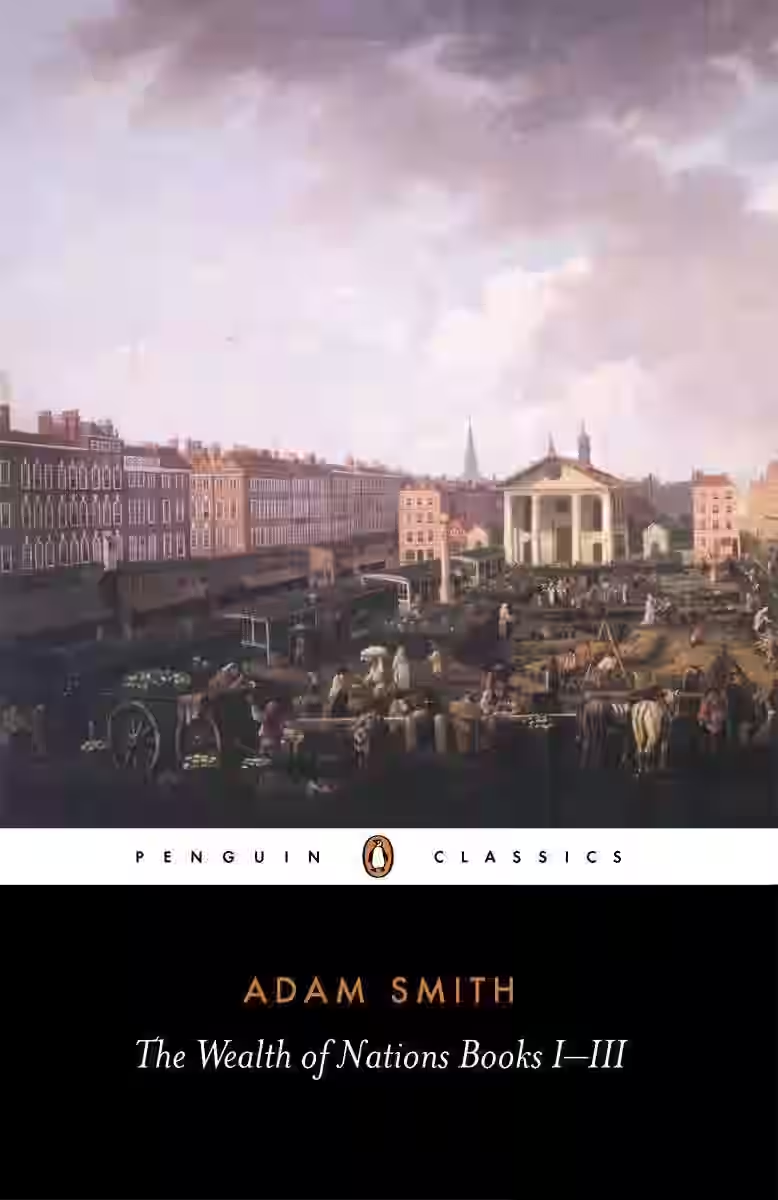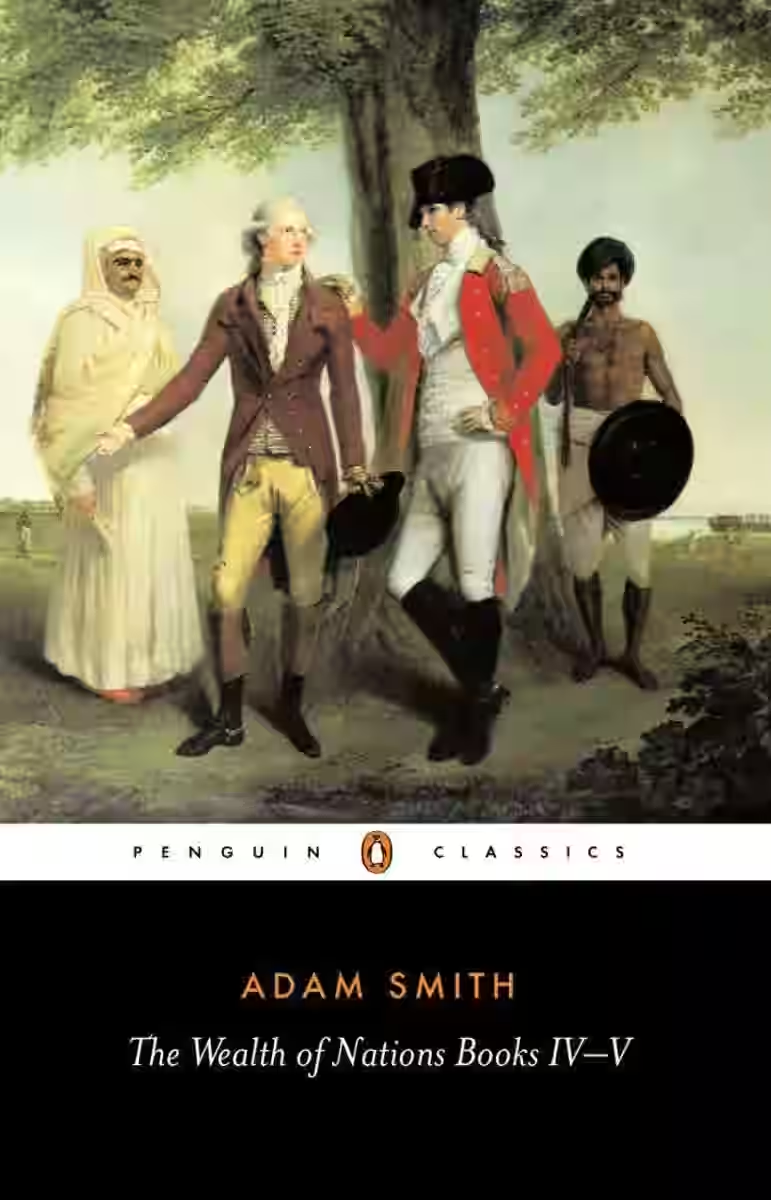Adam Smith
Adam Smith (1723–1790) was a Scottish economist, philosopher, and pioneer of classical economics. Best known for his seminal work The Wealth of Nations, he laid the foundation for modern economic theory with ideas on free markets, division of labor, and the "invisible hand" guiding self-interest toward public benefit. Smith also explored moral philosophy in The Theory of Moral Sentiments, emphasizing ethics, sympathy, and social cohesion. As a professor at the University of Glasgow, he influenced generations of thinkers. His work continues to shape economic policy and philosophy, making him one of the most influential figures in Western intellectual history.

In Books I–III of The Wealth of Nations, Adam Smith lays the foundation of classical economics by exploring the nature of labor, productivity, and market systems. He introduces the concept of the "invisible hand" and argues that individual self-interest can promote the public good through free-market mechanisms. Book I focuses on the division of labor and value, Book II on capital and stock, and Book III on the historical evolution of economic systems. Smith’s analysis of productivity, competition, and the role of self-regulation revolutionized economic thought and established key principles that underpin modern capitalism and economic theory.

Books IV–V of The Wealth of Nations critique existing economic policies and propose a framework for limited but essential government intervention. In Book IV, Smith dissects the mercantile system, rejecting trade restrictions and monopolies while advocating for free trade. He critiques colonialism and tariffs, favoring open markets. Book V addresses the role of the state in education, justice, defense, and infrastructure—functions Smith sees as necessary for a stable, prosperous society. These volumes balance his case for laissez-faire economics with the need for public investment, rounding out his vision of a functional, ethical, and productive political economy.